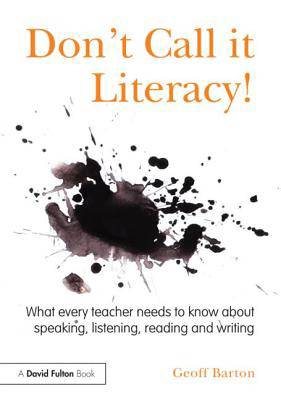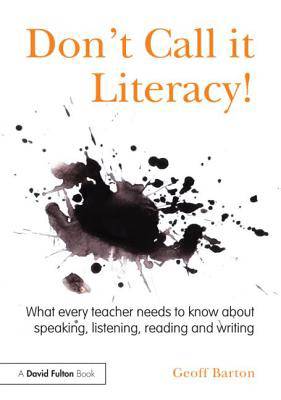
- Retrait gratuit dans votre magasin Club
- 7.000.000 titres dans notre catalogue
- Payer en toute sécurité
- Toujours un magasin près de chez vous
- Retrait gratuit dans votre magasin Club
- 7.000.000 titres dans notre catalogue
- Payer en toute sécurité
- Toujours un magasin près de chez vous
Don't Call it Literacy!
What every teacher needs to know about speaking, listening, reading and writing
Geoff BartonDescription
"Every teacher in English is a teacher of English," said George Sampson, one of the early school inspectors, back in 1921. It's never been truer, or more relevant.
Literacy has a major impact on young people's life-chances and it is every teacher's responsibility to help build their communication, reading and writing skills. However, this book isn't just about literacy; it's also about what great teachers do in their classrooms, about applying knowledge consistently across classrooms, in order to help pupils to become more confident in their subjects.
This book shows every teacher - whatever your subject - the simple steps which could transform your students into better speakers, listeners, readers and writers. Harnessing a range of straightforward, but powerful techniques, it shows you how to help each student in your subject to improve their spelling, to use the key vocabulary of your subject more accurately and to speak, read and write with confidence like a historian, scientist, designer or mathematician.
The book is structured into clear sections which are then divided into short, easy-to-absorb units on the classroom implications of what we know about literacy. Don't Call it Literacy! also includes:
- language commentaries which exemplify points made by the author;
- talking points at the end of each unit for self-assessment;
- a glossary for non-specialists;
- subject specific vocabulary for building students' word power;
- tutor time spellings lists;
- a reading list on teaching, language, literacy and education.
Written by a leading authority in the field, this book will help both trainee and practising secondary school teachers to turn their classroom into literacy-friendly environments, increasing the motivation and achievement of their students.
Spécifications
Parties prenantes
- Auteur(s) :
- Editeur:
Contenu
- Nombre de pages :
- 190
- Langue:
- Anglais
Caractéristiques
- EAN:
- 9780415536035
- Date de parution :
- 13-12-12
- Format:
- Livre broché
- Format numérique:
- Trade paperback (VS)
- Dimensions :
- 147 mm x 208 mm
- Poids :
- 272 g







